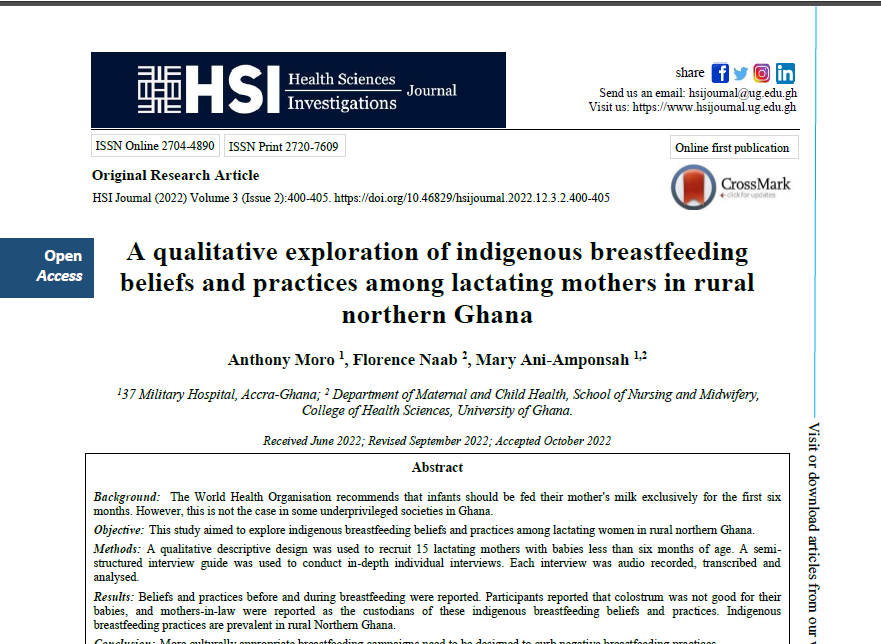A qualitative exploration of indigenous breastfeeding beliefs and practices among lactating mothers in rural northern Ghana
Indigenous breastfeeding beliefs and practices
Abstract
Background: The World Health Organisation recommends that infants should be fed their mother's milk exclusively for the first six months. However, this is not the case in some underprivileged societies in Ghana.
Objective: This study aimed to explore indigenous breastfeeding beliefs and practices among lactating women in rural northern Ghana.
Methods: A qualitative descriptive design was used to recruit 15 lactating mothers with babies less than six months of age. A semi-structured interview guide was used to conduct in-depth individual interviews. Each interview was audio recorded, transcribed and analysed.
Results: Beliefs and practices before and during breastfeeding were reported. Participants reported that colostrum was not good for their babies, and mothers-in-law were reported as the custodians of these indigenous breastfeeding beliefs and practices. Indigenous breastfeeding practices are prevalent in rural Northern Ghana.
Conclusion: More culturally appropriate breastfeeding campaigns need to be designed to curb negative breastfeeding practices.


